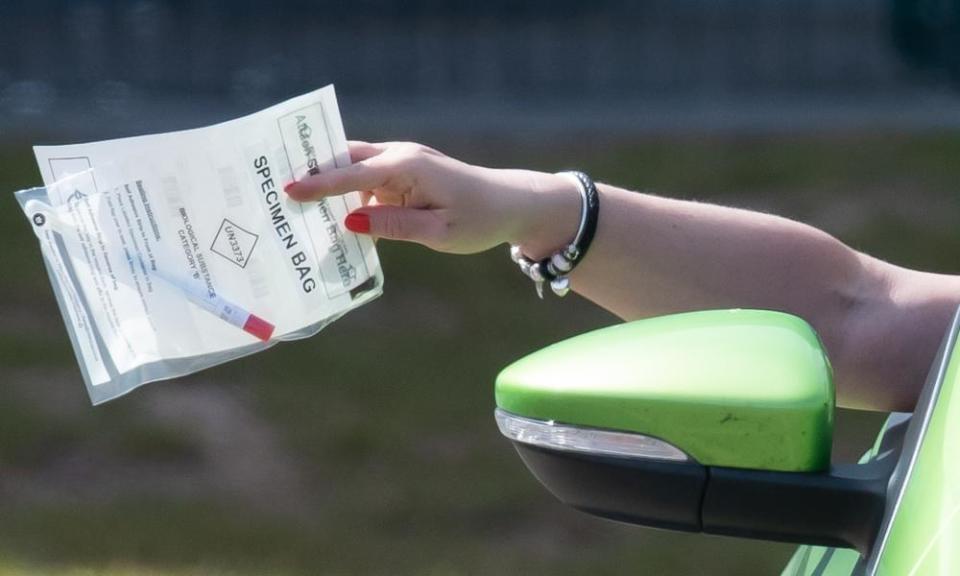Rishi Sunak backs down over tax on employer-bought Covid-19 tests

The chancellor, Rishi Sunak, has reversed a decision to force workers to pay income tax on Covid-19 tests purchased by their employers.
HMRC guidance published this week stated that workers would face a taxable benefit in kind when their employer pays for coronavirus testing, meaning a reduction in take-home pay.
But the Treasury select committee chair, Mel Stride, said the move was unfair, pointing out that workers could face mounting tax bills that risked discouraging them from getting checked.
Now Sunak has relented, telling Stride that the government is “introducing a new income tax and NICs [national insurance contributions] exemption from income tax for employer-provided Covid-19 antigen tests.”
The original guidance published by HMRC stated: “Coronavirus testing kits or tests carried out by a third party which have been purchased by you to provide to your employees are treated as a taxable benefit in kind on the employee.”
Benefits in kind are those that workers receive from employers that are not included in their salary, such as cars. Employees have to pay income tax calculated on the value of these benefits, which is then deducted from wages through PAYE.
The HMRC guidance made no mention of NHS staff or other key workers being exempt from the tax, and Stride warned: “Many employees, especially healthcare and hospitality workers, are required to undergo regular coronavirus testing. This new guidance is unclear and will worry a large number of workers.”
default
In a letter to Stride, Sunak clarified that Covid-19 tests were available “to a wide range of employees” via the government’s testing programme. He pointed out that care home staff have access to weekly testing whether they exhibit symptoms or not.
“If an individual is tested through the government testing programme, no tax liability will arise. This means that in the vast majority of cases, those who need to be tested have been and will continue to be able to access testing through the government programme,” he wrote.
However, he noted that Stride was correct in saying that “the provision of a third-party Covid-19 test by an employer to an employee constitutes a benefit in kind” and was therefore subject to income tax and national insurance contributions.
He added: “As most workers will already be able to access tests for free through the NHS, we expect this to only impact a small number of individuals. However, given the importance of widespread testing, the government wants to ensure that all employers who wish to provide testing to their employees can do so without increasing their tax liability. We are therefore introducing a new income tax and NICs exemption from income tax for employer-provided Covid-19 antigen tests.”
The exemption applies to tests that have taken place during the 2020-21 tax year.
Stride welcomed the move, saying: “It would not have been right to increase the tax bill for workers every time that they had a coronavirus test. I’m glad that common sense has prevailed. And I’m grateful that the chancellor has listened to the Treasury committee and reversed this decision so swiftly.”
A Treasury spokesperson said: “Given the importance of widespread testing, we want to ensure that all employers who wish to provide third-party testing to their employees can do so without increasing their tax liability. So we will introduce a new income tax exemption for Covid-19 antigen tests provided by employers. HMRC will amend their guidance as soon as possible to reflect this change.”

 Yahoo News
Yahoo News 